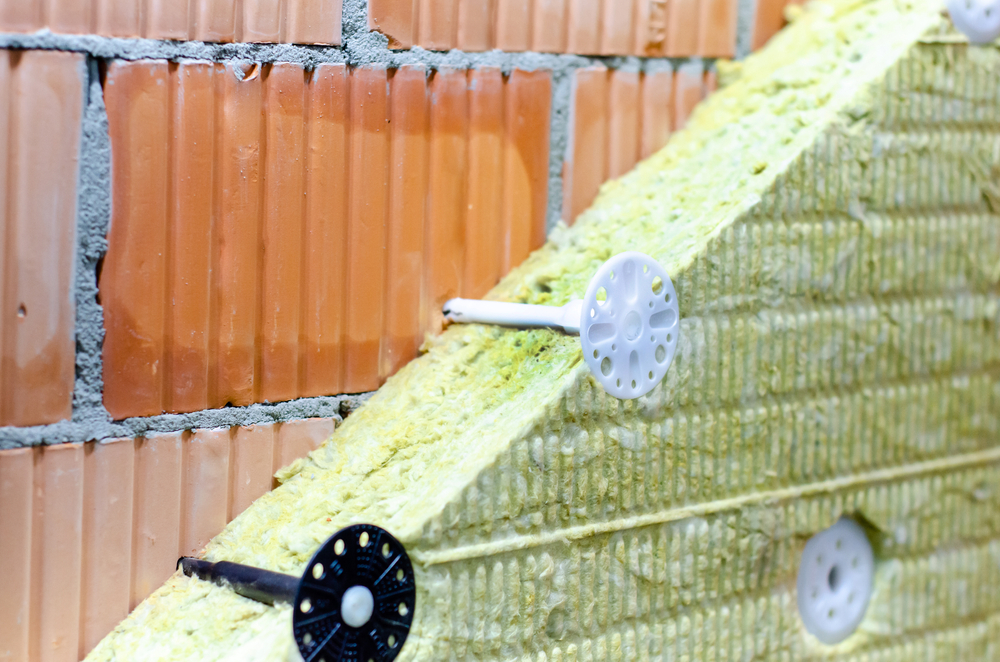The EU macro-regions: building redevelopment and environmental protection
Energy efficiency and renovation programmes in the building sector are crucial to achieve the 2050 climate neutrality target envisaged by the European Commission. This topic was discussed in a stakeholder session during the European Macro-Regions Week 2022

Le-macroregioni-Ue-la-riqualificazione-edilizia-e-la-tutela-ambientale
© Lutsenko_Oleksandr/Shutterstock
The third edition of the EU Macro-Regional Strategies Week (EU MRS WEEK) took place last spring. It aimed at fostering coordination and exchange of good practices between the 4 macro-regional strategies (EUSBSR, EUSDR, EUSAIR, EUSALP) and at promoting dialogue between different stakeholders, including European institutions, civil society organisations, scholars, and individual citizens.
Under the motto ‘involve, empower and evolve’, public meetings took place over five days (March 7-11), focusing on three main themes: youth, social innovation, and the green agenda.
For the first time, the programme included special sessions during which stakeholders could share their experiences and examples of good practices related to the three above mentioned themes. Among these, the session ‘Fostering the renovation wave in the Danube and Adriatic-Ionian macro-regions’, organised on the initiative of the Danube Macro-region (EUSDR) and the Danube Strategy Point (DSP), was dedicated to the topic of climate neutrality, with a focus on building renovation programmes for energy efficiency.
Croatia and Slovakia: sharing experiences between macro-regions
During the session, concrete examples of national programmes for energy efficiency in the building sector in Slovakia and Croatia, respective members of EUSDR and EUSAIR, were presented with the aim of sharing experiences and good practices.
"The building sector is crucial when it comes to energy consumption and energy efficiency", emphasised Vesna Bukarica of the Croatian Energy Institute. "In recent years, energy consumption in Croatia has steadily increased, with more than 40% of final consumption being absorbed by this sector”.
The new long-term Energy Efficiency Strategy adopted by the Croatian government in 2020, which aims to increase the rate of building renovation nationwide, plans to support projects that can produce energy savings of around 50%.
From a policy point of view, the main goal is to obtain adequate funding: ‘In order to achieve the objectives of the national strategy and the climate neutrality targets by 2050 in line with the European Commission’s Fit for 55 package, large investments are needed to encourage building renovation in terms of sustainable energy consumption’, Bukarica pointed out.
To do this, public investment is essential: "At European level, the most important financial mechanisms are the Recovery and Resilience Plan and the European Structural and Investment Funds (ESIF), while at national level projects will be financed mainly through the Energy Efficiency Fund set up by the Croatian government in 2003".
"Without funding, it is not possible to talk about energy renovation; the Recovery and Resilience Plan and the Structural Funds will be of central importance for Slovakia as well", added Jan Magyar, project manager at the Slovak Innovation and Energy Agency (SIEA), who also emphasised that, alongside funding, another necessary element for the implementation of programmes is the presence of qualified and highly trained staff: "SIEA devotes part of its work programme to the training of specialists through an online platform for sharing information, strategies and methods useful for the implementation of energy renovation and efficiency measures".
In order for energy renovation programmes to achieve their objectives, it is also important that citizens are not only aware of the issue, but also and above all informed about the programmes themselves. "This is why we have implemented, with European funds, the Live by energy project, the main objective of which is to increase the level of knowledge and awareness of the population on energy efficiency and the use of renewable energy sources by providing free advice to the public sector, families and young people", explained Magyar.
Hope and good practices from Ukraine
Not all countries participating in macro-regional strategies are EU member states. EUSAIR, for example, is the only macro-regional strategy that involves more non-EU countries from south-eastern Europe than member countries.
The European strategy for the Danube macro-region involves not only Bosnia and Herzegovina, Montenegro, and Serbia, but also Moldova and Ukraine, two countries included in the EU’s Eastern Partnership programme. Presenting research carried out for the Ministry of Industry and Trade of the Czech Republic on the energy performance of the building sector in the countries of the Danube region, Jiri Karasek, consultant of the Prague Centre for Energy Efficiency (SEVEn), acknowledged that "non-member countries offer good practices that can also be an inspiration and model for EU members".
According to the study, Ukraine has achieved one of the highest levels of reduction in energy consumption among the countries of the Danube region. This was confirmed by Alex Bycool, an energy efficiency expert from the Ukrainian Ministry of Development, reporting directly from the country: ‘Talking about energy efficiency is clearly not our priority. I can no longer deal with energy issues now, but I have to work on providing humanitarian aid to my population. However, being here with you today feels like coming back to a previous life, and I hope to be able to come back to discuss energy policy and good practices with you very soon”.
This content is published in the context of the “Work4Future” project co-financed by the European Union (EU). The EU is in no way responsible for the information or views expressed within the framework of the project. The responsibility for the contents lies solely with OBC Transeuropa. Go to the “Work4Future“
Tag: Work for Future
Featured articles
- Take part in the survey
The EU macro-regions: building redevelopment and environmental protection
Energy efficiency and renovation programmes in the building sector are crucial to achieve the 2050 climate neutrality target envisaged by the European Commission. This topic was discussed in a stakeholder session during the European Macro-Regions Week 2022

Le-macroregioni-Ue-la-riqualificazione-edilizia-e-la-tutela-ambientale
© Lutsenko_Oleksandr/Shutterstock
The third edition of the EU Macro-Regional Strategies Week (EU MRS WEEK) took place last spring. It aimed at fostering coordination and exchange of good practices between the 4 macro-regional strategies (EUSBSR, EUSDR, EUSAIR, EUSALP) and at promoting dialogue between different stakeholders, including European institutions, civil society organisations, scholars, and individual citizens.
Under the motto ‘involve, empower and evolve’, public meetings took place over five days (March 7-11), focusing on three main themes: youth, social innovation, and the green agenda.
For the first time, the programme included special sessions during which stakeholders could share their experiences and examples of good practices related to the three above mentioned themes. Among these, the session ‘Fostering the renovation wave in the Danube and Adriatic-Ionian macro-regions’, organised on the initiative of the Danube Macro-region (EUSDR) and the Danube Strategy Point (DSP), was dedicated to the topic of climate neutrality, with a focus on building renovation programmes for energy efficiency.
Croatia and Slovakia: sharing experiences between macro-regions
During the session, concrete examples of national programmes for energy efficiency in the building sector in Slovakia and Croatia, respective members of EUSDR and EUSAIR, were presented with the aim of sharing experiences and good practices.
"The building sector is crucial when it comes to energy consumption and energy efficiency", emphasised Vesna Bukarica of the Croatian Energy Institute. "In recent years, energy consumption in Croatia has steadily increased, with more than 40% of final consumption being absorbed by this sector”.
The new long-term Energy Efficiency Strategy adopted by the Croatian government in 2020, which aims to increase the rate of building renovation nationwide, plans to support projects that can produce energy savings of around 50%.
From a policy point of view, the main goal is to obtain adequate funding: ‘In order to achieve the objectives of the national strategy and the climate neutrality targets by 2050 in line with the European Commission’s Fit for 55 package, large investments are needed to encourage building renovation in terms of sustainable energy consumption’, Bukarica pointed out.
To do this, public investment is essential: "At European level, the most important financial mechanisms are the Recovery and Resilience Plan and the European Structural and Investment Funds (ESIF), while at national level projects will be financed mainly through the Energy Efficiency Fund set up by the Croatian government in 2003".
"Without funding, it is not possible to talk about energy renovation; the Recovery and Resilience Plan and the Structural Funds will be of central importance for Slovakia as well", added Jan Magyar, project manager at the Slovak Innovation and Energy Agency (SIEA), who also emphasised that, alongside funding, another necessary element for the implementation of programmes is the presence of qualified and highly trained staff: "SIEA devotes part of its work programme to the training of specialists through an online platform for sharing information, strategies and methods useful for the implementation of energy renovation and efficiency measures".
In order for energy renovation programmes to achieve their objectives, it is also important that citizens are not only aware of the issue, but also and above all informed about the programmes themselves. "This is why we have implemented, with European funds, the Live by energy project, the main objective of which is to increase the level of knowledge and awareness of the population on energy efficiency and the use of renewable energy sources by providing free advice to the public sector, families and young people", explained Magyar.
Hope and good practices from Ukraine
Not all countries participating in macro-regional strategies are EU member states. EUSAIR, for example, is the only macro-regional strategy that involves more non-EU countries from south-eastern Europe than member countries.
The European strategy for the Danube macro-region involves not only Bosnia and Herzegovina, Montenegro, and Serbia, but also Moldova and Ukraine, two countries included in the EU’s Eastern Partnership programme. Presenting research carried out for the Ministry of Industry and Trade of the Czech Republic on the energy performance of the building sector in the countries of the Danube region, Jiri Karasek, consultant of the Prague Centre for Energy Efficiency (SEVEn), acknowledged that "non-member countries offer good practices that can also be an inspiration and model for EU members".
According to the study, Ukraine has achieved one of the highest levels of reduction in energy consumption among the countries of the Danube region. This was confirmed by Alex Bycool, an energy efficiency expert from the Ukrainian Ministry of Development, reporting directly from the country: ‘Talking about energy efficiency is clearly not our priority. I can no longer deal with energy issues now, but I have to work on providing humanitarian aid to my population. However, being here with you today feels like coming back to a previous life, and I hope to be able to come back to discuss energy policy and good practices with you very soon”.
This content is published in the context of the “Work4Future” project co-financed by the European Union (EU). The EU is in no way responsible for the information or views expressed within the framework of the project. The responsibility for the contents lies solely with OBC Transeuropa. Go to the “Work4Future“
Tag: Work for Future











